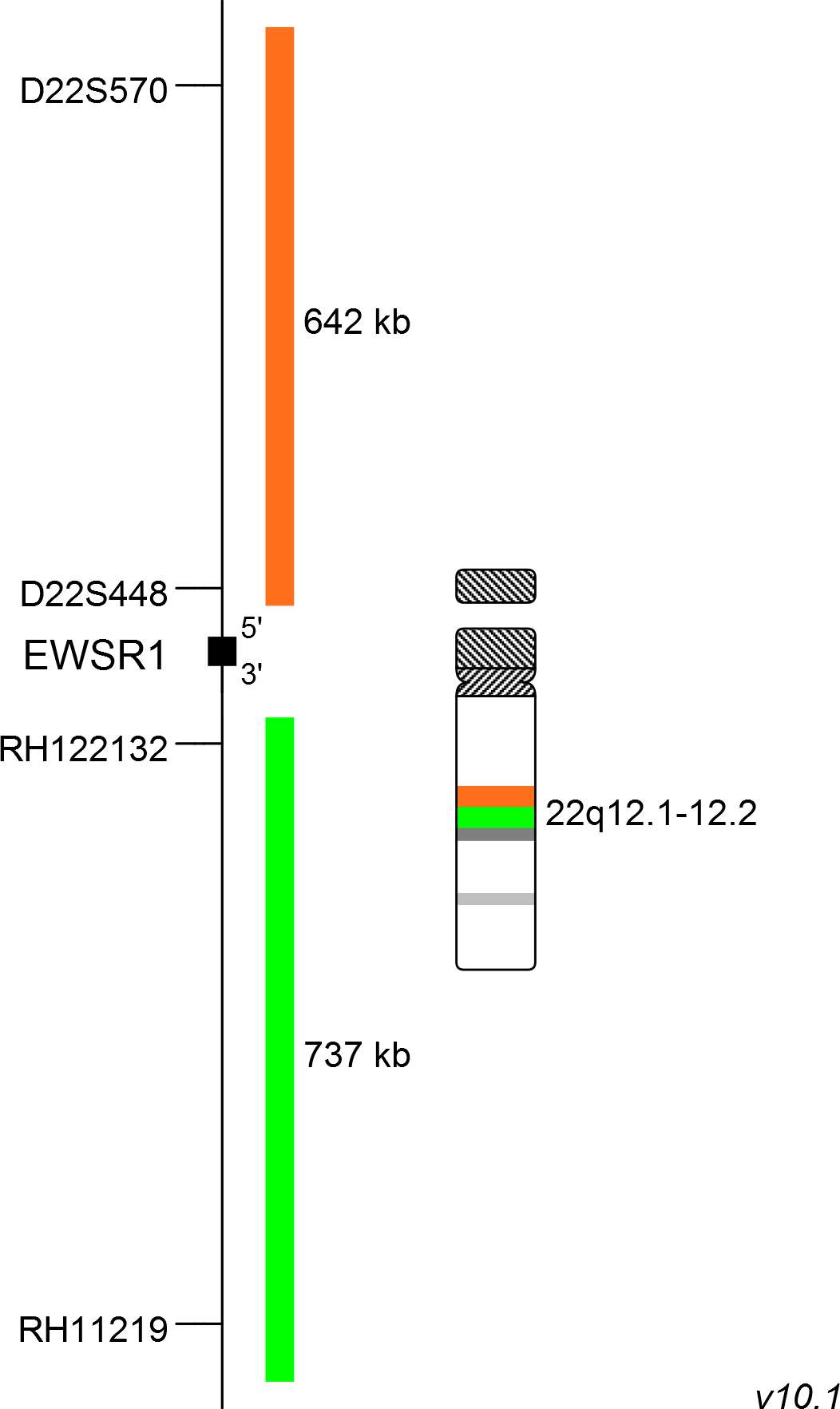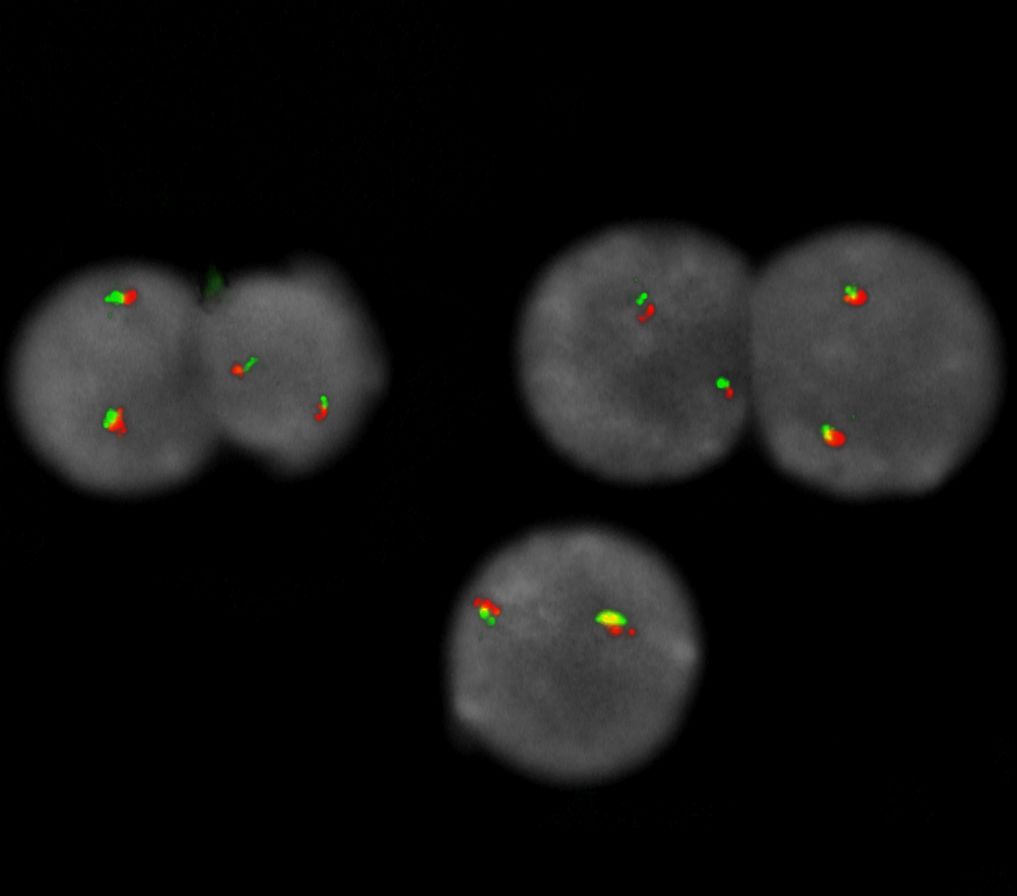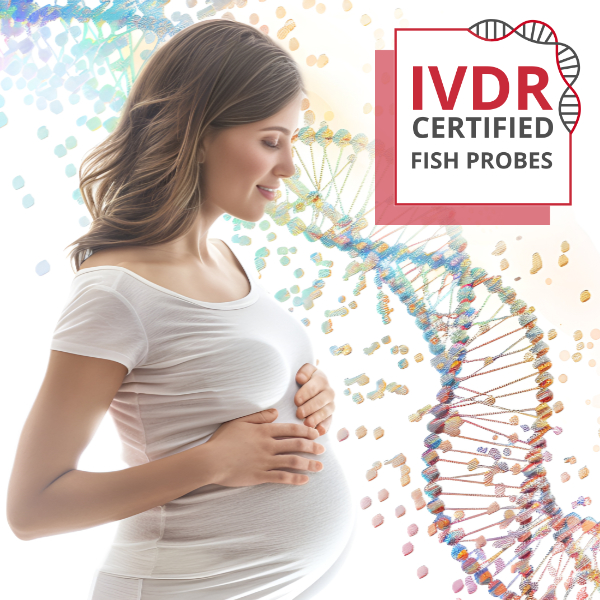
XL EWSR1 BA
Break Apart Probe
- Order Number
- D-6011-100-OG
- Package Size
- 100 µl (10 Tests)
- Chromosome
- 2222
- Regulatory Status
- IVDD
IVDR Certification
MetaSystems Probes has already certified a wide range of FISH probes, according to IVDR.
This product remains IVDD-certified until further notice.
Discover all IVDR-certified products
XL EWSR1 BA consists of an orange-labeled probe hybridizing proximal to the EWSR1 gene region at 22q12.1-12.2 and a green-labeled probe hybridizing distal to the EWSR1 gene region at 22q12.2.
Probe maps for selected products have been updated. These updates ensure a consistent presentation of all gaps larger than 10 kb including adjustments to markers, genes, and related elements. This update does not affect the device characteristics or product composition. Please refer to the list to find out which products now include updated probe maps.
Probe map details are based on UCSC Genome Browser GRCh37/hg19, with map components not to scale.
Ewing sarcoma (EWS) is a rare and highly aggressive cancer with an incidence of about three in one million Caucasians. The incidence in Africans is significantly lower. EWS is more common among children and young adults than in adults and mostly arises in bones and to lower extend in soft tissue. EWS is typified by chromosomal translocations resulting in fusion genes between the EWS RNA Binding Protein 1 (EWSR1) and a member of the group of ETS transcription factors. t(11;22)(q24;q12) is the most common of these translocations represented by the EWSR1-FLI1 fusion gene with a frequency of about 85%. The EWSR1 part contributes a strong transcriptional domain while FLI1 is providing the ETS family DNA binding domain. The chimeric protein is dysregulating target genes leading to oncogenic transformation and is absolutely required for tumorigenesis in EWS. Other translocation partners are known, but no difference in survival has been observed between different fusion genes. Although complex karyotypes are rare in EWS, gain of chromosome 1q, 8, 12 and loss of 9p21 (CDKN2A) and 16q is observed. The EWSR gene is expressed in several tissues and is involved in other tumor diseases. EWSR1 has manifold functions and is involved in different control mechanisms in the cell. EWS is genetically stable and complex karyotypes are rare.
Clinical Applications
- Solid Tumors (Solid Tumors)

Normal Cell:
Two green-orange colocalization/fusion signals (2GO).

Aberrant Cell (typical results):
One green-orange colocalization/fusion signal (1GO), one separate green (1G) and orange (1O) signal each resulting from a chromosome break in the respective locus.
- Delattre et al (1992) Nature 359:162-165
- Smith et al (2006) Cancer Cell 9:405-416
- Sannino et al (2017) Future Oncol 13:1207-1211
Certificate of Analysis (CoA)
or go to CoA Database




